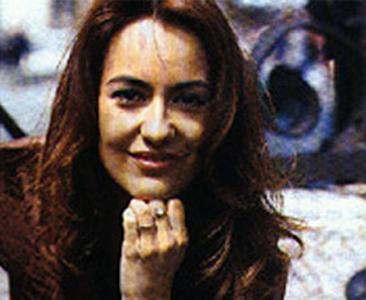2. Anglès [Fragment from East, West]
It was a sunny morning in Jerusalem, holy city, accursed city. It was the country of Canaan. When she was born, no one cut the cord that joined her to her mother’s body, or bathed her in the crystal-clear water, or wanted to swaddle her. Yahweh saw her, all abandoned and covered in blood and made her grow until she became an extraordinarily beautiful maiden. Then, he covered with his mantle the nudity of Jerusalem. He clothed her and adorned her with priceless jewels. He fed her flour and oil and honey. Her fame spread throughout the nations and the glory of the city was immense. Yet Yahweh felt betrayed by his chosen one. In her name and over a history of fifty centuries, there have been more than ten million deaths in Jerusalem. Her inhabitants have been deported, crucified or sold as slaves. Nobody knows, to this day, which of death’s secrets inhabits her.
Tarik's rage burned like fire. Lying in the terrace room he was still unable to sleep. Beside him, Aixa’s breathing, and the baby's, were almost imperceptible. Since the child's birth, he'd stopped thinking about it, his hatred. Nothing had so intensely distracted his thoughts for many years. In the last few weeks, in the time he spent in the shop, capturing and attracting the desire of tourists towards some or other trifle, he had felt almost happy. Aixa remained in the upstairs room, recovering from the birth. The baby was at her side in the cot that he himself had carried home and that he liked to rock. In the middle of the morning, he raised his eyes to the sky as if wishing to divine rain and wondered what they were doing, his wife and child, up there in their refuge. Maybe Aixa had the child at her breast, or was putting him to sleep, softly singing to him or telling him stories. In evoking them, he breathed very deep and knew they were his. They belonged to him. He therefore had to protect them from all adversity.
This sensation kept his mind busy for a while. He forgot about the problems that had led him to attend the secret meetings where Palestinians vented their fury and made plans for the future of Jerusalem. The city that belonged to them and that others were determined to steal from them. With the arrival of his son, it all faded into the background. It was as if nothing else was important, or his eyes were covered by a thick blindfold. He would have liked this blindness to last forever. They would have been able to live in peace. To wait for a while, until Aixa and the child were fully recovered, and to set out again upon the life they had dreamed of. At times he thought that Jerusalem was a terrible city, able to submit wills and full of secrets, yet as desirable as a red apple or a virgin girl. It was inaccessible with its eight gigantic gates, with the little alleys that they inhabited, where there was no future.
He had fled these thoughts but one morning they came back without warning and all his hopes of silence melted away. The idea of a peaceful life with Aixa and the baby grew faint. He had discovered that it would be a lie. They would never have the right to calm. Perhaps they might manage to play the role their parents had played, to act as if nothing bothered them. Meanwhile, the house would grow old with them. But the death of its walls would be much worse than his own because it would mean renouncing the space that was his. When the time came for them to repeat the actions of others, to prepare the bundle, knotting just a few a few things together, to wipe away the sorrow and leave, there would be no road back.
He had discovered this only that morning. At times, the biggest decisions, the ones that change one's life in the blink of an eye, are made in a hurry. As if, in reality, we were not the ones who decided to opt for white or black, but rather it was life itself that thrust us into the choice. Life is then responsible for our mistakes because life guides us with an erring hand. Hence, when we make the wrong choice, we don't know if what we have done is the product of our free will, or of some game of chance, or the influence of some star. Tarik didn't usually spend long looking at stars. He only had to do that on the roads to Bethlehem when he was seeking the shelter of some doorway. Yet, even then, his thoughts were too muddled. Addled by desire, full of Aixa, he had no time to think about omens in the sky. Perhaps, if he had known how to read the starry vault, he would have gone back and forgotten about the Israelis, would have wanted to be like the old people, making sure that life would go on without too many storms.
(From Orient, Occident (East, West), 1997, p. 125-127)
Translated from the Catalan by Julie Wark ©


